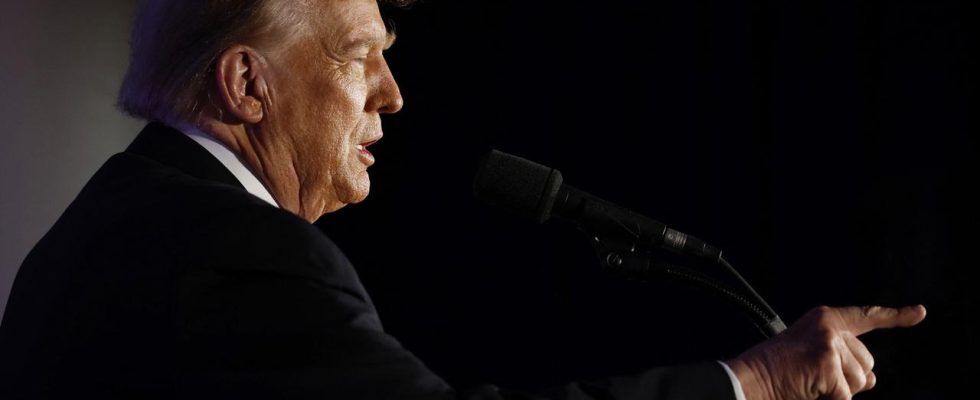After his clear victory in Iowa, Trump briefly adopted a conciliatory tone that made people sit up and take notice. But now he is back in attack mode. Does Trump fear his internal party competition more than he admits?
Even for those who despise Trump, this choice of words had something refreshing: “I really believe that now is the time for all of us, for our country, to come together,” said Trump on the evening of his surprisingly clear election victory in Iowa. “We want to come together, Republicans and Democrats, liberals and conservatives!”
Some people couldn’t believe their ears, even when Trump reached out to his most dangerous competitors: “I would like to congratulate Ron and Nikki on having a good time together. They both did very well.”
Just the same old man
It quickly became clear that this was winning rhetoric, the conciliation of someone who no longer has anything to fear. Knowing full well that the victory in Iowa did not secure his candidacy, Trump was quickly back to his old self this week. Especially since the third-place finisher from Iowa, the former UN ambassador Nikki Haley, didn’t want to go easy on him: she announced that she no longer wanted to take part in any TV debates that didn’t include Trump. The networks ABC and CNN then canceled their previously scheduled TV duels.
Like Obama
“Voting for Haley next Tuesday means voting for Biden,” said Trump during the election campaign in New Hampshire. And not only that: On social networks, Trump did what he had already tried with Barack Obama: He raised doubts about whether Haley would even be allowed to run for president because of her immigrant background. Haley’s parents, who immigrated from India, were not yet U.S. citizens when their daughter was born on American soil in 1972. “I am proud to be born in Bamberg, South Carolina,” Haley felt compelled to clarify.
Trump also used Haley’s Indian first name Nimarata (misspelled Nimrada) in his insulting post in order to make her sound as un-American as possible. Hailey countered: “All I want to say about the insults is: I know President Trump well. He does that when he feels threatened and insecure.”
In any case, the affable sound from election evening: it quickly faded away.
A “sign of weakness”?
And other Trump critics in the Republican Party, such as the former governor of Maryland, also found the change in tone less confident. “A sign of weakness,” said Larry Hogan on CNN. “Trump knows how competent and campaign-savvy Haley is.”
And Ron DeSantis, who did better in Iowa than the former governor of South Carolina? He demonstratively stayed out of it: “Trump is solely responsible for his choice of words and his behavior,” said Florida’s governor. If two fight during the election campaign, DeSantis seems to hope, then the third will be happy.
What makes Trump’s challengers nervous, however, are the election recommendations for Trump, which are now coming more and more from his competitors who have dropped out. After Vivek Ramaswamy, Senator Tim Scott – like Haley from South Carolina – has now called for Trump to be elected. The calculation that a united front against Trump could form as the field of candidates shrinks does not seem to work.
Sebastian Hesse, ARD Washington, tagesschau, January 20, 2024 7:48 p.m

